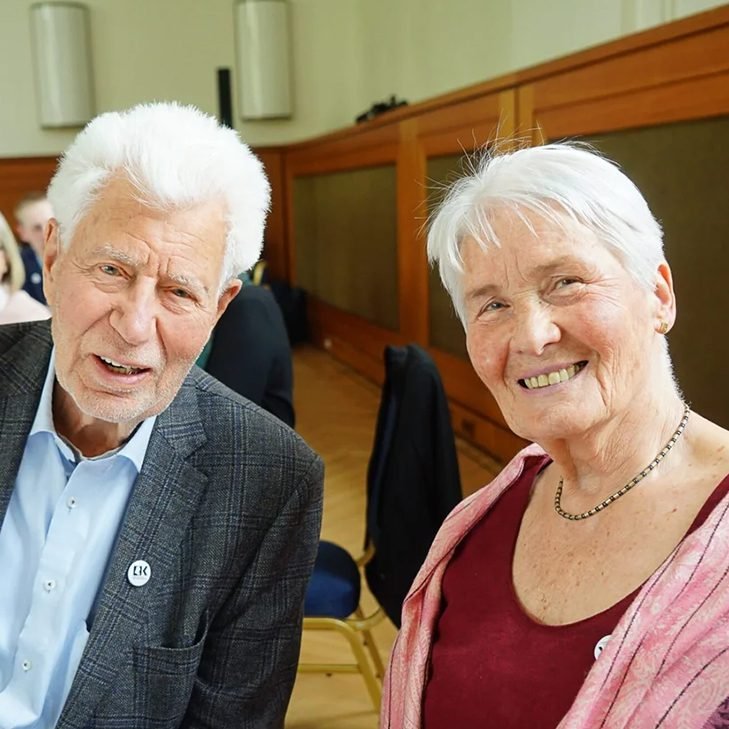We participated in this group excursion for the first time and our head is still spinning after so many cultural and social highlights. Worthy of mention in this context is, for one, the excellently organized tour of Kaliningrad as well as the enriching speeches about the historical and cultural significance of Immanuel Kant.
The trips to the sites memorializing Kant`s life that are taking shape in Judtschen (now Weselowka) with the „Kant–Haus“ and to Wohnsdorf (now Kurortnoje) in the Kaliningrad oblast with the ruins of the Ritterorden tower, where Kant spent some of his free time puffing his pipe as he looked at the river Alle, deepened our understanding of what we had just heard in the presentations about Kant. Also worthy of mention is the fact that today the ruins of the tower are being transformed, with the big help by a
Russian entepreneur, into a memorial dedicated to the great philosopher.
Kant´s birthday was, of course, a special day for all of us, with an organ concert performed in his honor in the Koenigsberger Dom. The traditional „Bohnenmahl“ (meal of beans) that followed the ceremony rounded out this outstanding event. It included stimulating conversations with the Russian guests who were also invited. Among the overwhelming impressions were visits to the cities Pillau, Insterburg and
Tilsit, as well as the trips to the coast oft he Baltic Sea, including the Russian part of the Kurische Nehrung. Noteworthy, too, is our stay at the „Schlosshotel“ in Palmnicken, with the newly-built wooden beach walkway, which led us to the gripping monument in honor of the inmates of Nazi concentration camps killed there in 1945.
The exchange of impressions with others in the group became ever more meaningful in the effort to sort out the wealth of information. The powerful resonance of the knowledge imparted to us during this trip showed that the cultural heritage of Koenigsberg is of great significance and very much in evidence in Kaliningrad and in its
oblast.
As a German-American, I perceive certain parallels with the insights gained from the British and the French influence in territories that became federal states of the USA. The strong dedication of Mrs. Motherby and Mr. Horst and many others to strengthen the cultural bridge linking Germany and the Kaliningrad oblast has become even more evident to us as a result of this trip and has taken roots in us as well.
The Russian population now living in the region is prepared to integrate the German cultural heritage. This is evident in many respects and even seems to have become stronger.
We are delighted and grateful to see that this development is taking place while we are
still alive.
© April 2018 Monika and Roderick Boes


